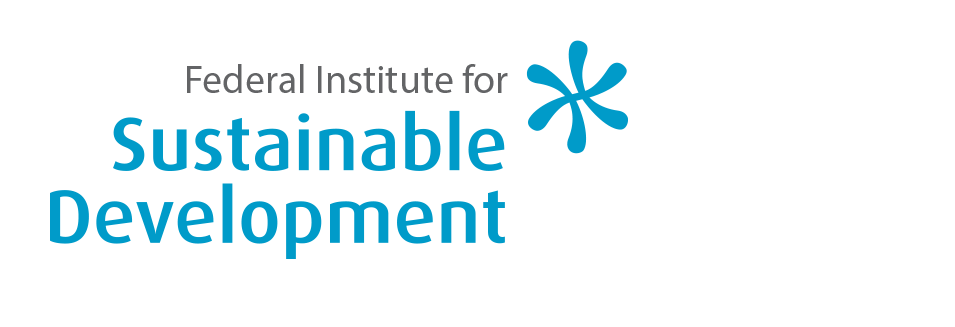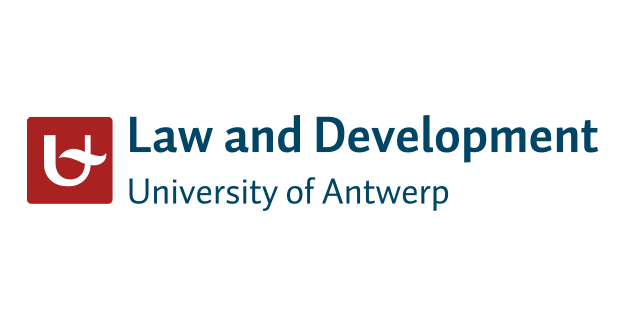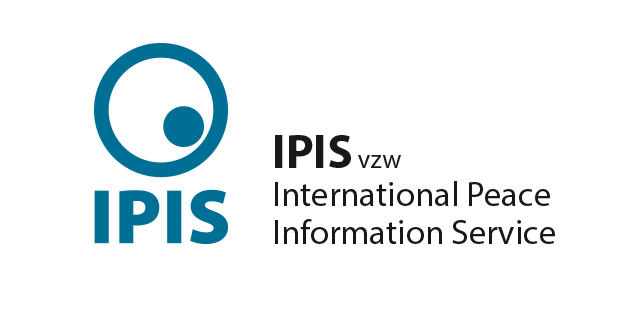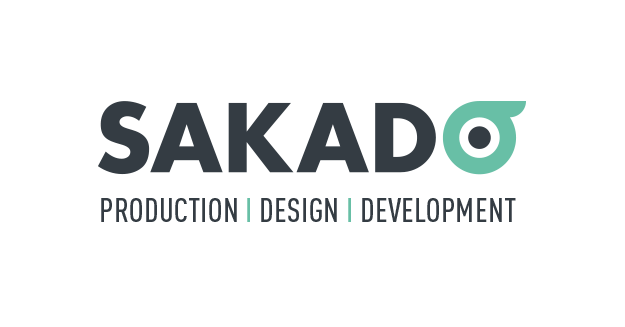5 Multi-stakeholder initiatives
What are multi-stakeholder initiatives?

Multi-stakeholder initiatives (MSIs) are frameworks for engagement between businesses, civil society and other stakeholders such as governments. They seek to address issues of mutual concern, including human rights and sustainability. MSIs may facilitate dialogue across stakeholder groups, promote cross-sector learning, or develop standards for corporate conduct.
Because MSIs are often sector-specific, tailored and practical, they can be valuable tools to assist organisations to respect human rights in their daily work.
Some multi-sectorial initiatives are part of an institution, while others are independent initiatives. This tool describes the MSIs of four institutions of which Belgium is a member (United Nations, OECD, ILO and the EU) and the intergovernmental Kimberley Process. It should be noted that other MSIs, which are not included in this tool because the Belgian state is not a member, might be relevant for organisations using this toolkit. Tool 6 describes MSIs in a selection of economic sectors that are specifically relevant for Belgium.
There is no clear-cut definition of an MSI. The common denominator between the diverse initiatives referred to as MSIs is that they are interactive processes in which businesses, non-profit organisations and possibly other stakeholder groups interact to make organisations more socially and/or environmentally sustainable.
Over the last two decades, MSIs have been established in almost every major global industry. By joining an MSI, organisations agree to adhere to the standards or agenda of that MSI. Today, MSIs are central pillars of the human rights strategies of many organisations.
MSIs can perform a wide variety of functions such as: awareness-raising, bringing various stakeholders together, creating mutual understanding, cross-sector learning, capacity-building, standard-setting, certification and verification of good practices. Almost all MSIs provide non-binding guidance to organisations.
- Multi-stakeholder initiatives in which Belgium is a party
-
The MSIs described in this tool are relevant to Belgian organisations because Belgium is a signatory to these initiatives. The MSIs listed below are grouped per economic sector. All the MSI’s standards described in this tool are non-binding, except for those of the Kimberley Process.
It is important to note that the majority of MSIs include businesses, civil society organisations and/ or other non-governmental members. This means that other MSIs, which are not included in this tool because the Belgian state is not a member, might be equally relevant for organisations using this toolbox. Tool 6 describes a number of such MSIs in a selection of economic sectors that are specifically relevant for Belgium.
- Environment
-
UN Global Compact Guidance for Companies on Respecting the Human Rights to Water and Sanitation (2015)
This guidance helps organisations in the UN Global Compact to respect the human rights to water and sanitation. The guidance aims to assist organisations, particularly heavy water users, in translating their responsibility to respect these human rights into their existing water management policies and processes. Step-by-step guidance assists organisations from the development of policy commitments to the design of effective grievance mechanisms.
Environmental Rights Initiative (2018)
This initiative, initiated by the UN Environment Programme, is a coalition of states and organisations united to promote, protect, and respect environmental rights. It focuses on access to unspoiled natural resources that enable survival, including land, shelter, food, water and air. The Environmental Rights Initiative engages with organisations to help them better understand what their environmental rights obligations are. The UN Environment Programme provides legal support and training materials on issues related to environmental rights. Members also receive assistance in securing UN Environment Programme accreditation and get the opportunity to engage with an international network for peer-to-peer learning and knowledge sharing.
- Extractives
-
Kimberley Process
The Kimberley Process is a binding agreement focusing on trade in rough diamonds. The Kimberley Process is a government-led, tripartite political process that seeks to halt the flow of conflict diamonds, defined as “rough diamonds used by rebel movements to finance wars against legitimate governments.” It is tripartite because it was originally founded by governments, industry and civil society. Only governments have decision-making power. Industry and civil society are observers, with industry providing expertise and civil society playing a watchdog role.
The Kimberley Process convenes twice a year to oversee the functioning of the Kimberley Process Certification Scheme. This is done through plenary and intersessional meetings, as well as a number of working groups and committees. The Kimberley Process Certification Scheme (2002) is intended to prevent conflict diamonds from entering the global diamond supply chain by requiring diamonds to be tracked from point of production to export. The diamonds should be exported with a certificate guaranteeing that they are conflict-free. This only applies to rough diamonds and excludes cut and polished diamonds.
The Kimberley Process is currently in a reform cycle. The main issues on the table are the broadening of the definition of conflict diamonds and improving Kimberley Process support to African producer states in implementing internal controls in their countries, as well as oversight of industry in trading and manufacturing states.
Due Diligence Guidance for Responsible Supply Chains of Minerals from Conflict-Affected and High-Risk Areas (2016)
This OECD guidance provides detailed recommendations for organisations on respecting human rights and avoiding contributing to conflict through their mineral purchasing decisions and practices. This Guidance can be used by any business potentially sourcing minerals or metals from conflict-affected and high-risk areas._ The Guidance applies to all minerals and is global in scope. The objective of the Guidance is ultimately to promote responsible private sector engagement in post-conflict fragile states.
The Guidance clarifies how organisations can identify and better manage risks throughout their entire mineral supply chain. This is articulated in a five-step framework:
- Establish strong management systems
- Identify and assess risks in supply chains
- Design and implement a strategy to respond to identified risks
- Carry out independent, third-party audits of the smelters/ refiners due diligence practices
- Report annually on supply chain due diligence.
More details on the due diligence steps can be found in Tool 8.
Since its adoption in 2011, the Guidance has become the leading industry standard for organisations on mineral supply chain transparency and integrity. For instance, the EU regulation on responsible mineral supply chains is based on the Guidance.
A complementary tool to the Guidance is the OECD Practical actions for companies to identify and address the worst forms of child labour in mineral supply chains (2017). Child labour is a serious human rights abuse that can be associated with the extraction, transport or trade of minerals. This tool explains what organisations should do to avoid tolerating, profiting from, contributing to, assisting or facilitating child labour in the course of doing business.
A second complementary tool is the OECD Sourcing Gold from Artisanal and Small-Scale Mining (2016), which calls on stakeholders to engage in the legalisation and formalisation of artisanal mining communities. The objective is to build secure, transparent and verifiable supply chains, to ensure that legitimate artisanal mining communities can benefit from mineral trade in conflict-affected and high-risk areas and to support their development.
Due Diligence Guidance for Meaningful Stakeholder Engagement in the Extractive Sector (2017)
This is an OECD Guidance that provides a practical framework for identifying and managing risks through stakeholder engagement activities. The Framework gives practical recommendations to management and to mine site-level staff. For the latter, the following steps are presented:
- Ensuring that staff leading stakeholder engagement understand the local and operational context;
- Identifying priority stakeholders and interlocutors;
- Establishing the necessary support system for meaningful stakeholder engagement;
- Designing appropriate and effective stakeholder engagement activities and processes;
- Tracking and ensuring follow-through on outcomes of stakeholder engagement;
- Monitoring and evaluating stakeholder engagement activities and responding to shortcomings.
The document also gives targeted guidance on how to approach and relate to specific stakeholder groups, such as indigenous peoples, women, workers, and artisanal and small-scale miners. For more information on stakeholder engagement in due diligence processes, see Tool 8.
EU Oil and gas sector guide on implementing the UN Guiding Principles on Business and Human Rights (2013)
This guide was developed by the European Commission. The Guide offers practical advice on how to apply the UN Guiding Principles on Business and Human Rights in the specific context of the oil and gas sector. The Guide summarises what the Guiding Principles prescribe and offers a range of ideas and examples of how to put them into practice. The Guide concentrates on upstream activities of oil and gas organisations throughout the project lifecycle.
The Guide gives practical advice on how to apply the six core elements of the corporate responsibility to respect human rights to the oil and gas sector:
- Developing a human rights policy commitment: the organisation’s overarching, public commitment to respect human rights.
- Assessing actual and potential human rights impacts
- Integrating the findings and acting to prevent or mitigate the impacts
- Tracking how effectively impacts are addressed
- Communicating how impacts are addressed
- Engaging in the remediation of impacts caused or contributed to by the organisation.
More details on the due diligence steps can be found in Tool 8.
- Agriculture
-
Guidance for Responsible Agricultural Supply Chains (2016)
This guidance was developed by the OECD and the UN FAO. This non-binding guidance assists organisations in observing standards of responsible conduct in the agricultural supply chain. Several areas of risk arising along agricultural supply chains are addressed: human rights, labour rights, health and safety, food security and nutrition, tenure rights over and access to natural resources, animal welfare, environmental protection and sustainable use of natural resources, governance, and technology and innovation.
The guidance proposes a model business policy that includes the major standards that organisations should observe to build responsible agricultural supply chains.
The guidance proposes the following five-step framework to undertake risk-based due diligence along agricultural supply chains.
- Embedding responsible business conduct into business policy and management systems
- Identifying actual and potential harms in the organisations’ own operations and its supply chains
- Ceasing, preventing or mitigating harm in an organisation’s own operations and its supply chains
- Tracking how effectively impacts are addressed
- Communicating how impacts are identified and addressed.
More details on the due diligence steps can be found in Tool 8.
Finally, the Guidance describes the major risks faced by organisations and provides a guide for engaging with indigenous peoples.
Food and Agriculture Business Principles (2014)
The UN Global Compact member organisations in the food and agriculture sector can voluntarily follow the below set of Food and Agriculture Business Principles (2014) and report annually on their progress:
- Supporting food and agriculture systems that optimize production and minimize waste
- Supporting sustainable intensification of food systems to meet global needs and protect and enhance the environment
- Creating, delivering and sharing value across the entire food and agriculture chain, from farmers to consumers
- Respecting human rights, creating decent work and helping communities to thrive
- Behaving legally and responsibly by respecting land and natural resource rights, avoiding corruption, being transparent about activities and recognizing their impacts
- Promoting access to and transfer of knowledge, skills and technology.
International Cacao Initiative
The International Cacao Initiative (ICI) unites the cocoa and chocolate industry, civil society, farming communities and national governments in cocoa-producing countries. ICI works with its partners to ensure that cocoa-growing communities are more protective of children and their rights, that the cocoa supply chain manages the risk of child labour responsibly and that knowledge and information are spread in an open and transparent manner.
- Garment sector
-
Due Diligence Guidance for Responsible Supply Chains in the Garment and Footwear Sector (2017)
The OECD guidance provides organisations with a complete package to operate and source responsibly in the garment and footwear sector. Issues covered by the Guidance are child labour, sexual harassment, forced labour, trade unions, health and safety, water, wages, working time, bribery and corruption, responsible sourcing, hazardous chemicals and greenhouse gas emissions.
The Guidance proposes a due diligence framework that includes the following steps:
- Embedding responsible business conduct into business policy and management systems;
- Identifying actual and potential harms in an organisation’s own operations and its supply chain;
- Ceasing, preventing or mitigating harm in an organisation’s own operations and its supply chains;
- Tracking how effectively impacts are addressed;
- Communicating how impacts are identified and addressed;
- Providing for or cooperate through legitimate processes in the remediation of adverse human rights
More details on the due diligence steps can be found in Tool 8.
Clean Clothes Campaign
The Clean Clothes Campaign (CCC) is a global alliance that aims to improve working conditions and empower workers in the global garment and sportswear industries.
Clean Clothes Campaign brings together trade unions and NGOs covering a broad spectrum of perspectives and interests, such as women’s rights, consumer advocacy and poverty reduction. CCC has two platforms in Belgium, the Flemish platform Schone Kleren Campagne and the Wallonia platform Actions Consommateurs Travailleurs (achACT). Both have NGOs and Trade Unions, including those of public services, as their members.
The accord on fire and building safety in Bangladesh
This accord is an independent agreement designed to make all garment factories in Bangladesh safe workplaces. It includes independent safety inspections at factories and public reporting of the results of these inspections. The accord is a legally binding agreement.
- Employment and recruitment
-
EU Employment & recruitment agencies sector guide on implementing the UN Guiding Principles on Business and Human Rights (2013)
This guide was developed by the European Commission. The Guide offers practical advice on how to apply the UN Guiding Principles on Business and Human Rights to the specific context of employment and recruitment agencies. The Guide summarises what the Guiding Principles prescribe and offers a range of ideas and examples of how to put them into practice.
The Guide gives practical advice on how to apply the six core elements of the corporate responsibility to respect human rights to the activities and relationships of employment and recruitment agencies:
- Developing a policy commitment and embedding respect for human rights into the culture of the organisation
- Assessing actual and potential human rights impacts
- Integrating the findings and acting to prevent or mitigate the impacts
- Tracking how effectively impacts are addressed
- Communicating how impacts are addressed
- Engaging in remedying impacts caused or contributed to by the
More details on the due diligence steps can be found in Tool 8.
Fair Recruitment Initiative: Fostering fair recruitment practices, preventing human trafficking and reducing the costs of labour migration (2014)
This initiative was launched by the International Labour Organization (ILO). The initiative aims to help prevent human trafficking and forced labour, to protect the rights of workers from abusive and fraudulent practices during the recruitment process, to reduce the cost of labour migration and to enhance development outcomes for migrant workers and their families.
This MSI is implemented in close collaboration with governments, employers’ and workers’ organisations, businesses, and other key partners. It is based on a four-pronged approach:
- Enhancing global knowledge about national and international recruitment practices
- Improving laws, policies and enforcement to promote fair recruitment
- Promoting fair business practices
- Empowering and protecting workers.
General principles and operational guidelines for fair recruitment (2016)
These ILO principles and guidelines aim to inform national legislatures and social partners about promoting and ensuring fair recruitment. Implementation of these principles and guidelines at the national level should occur after consultation between the social partners and the government. The general principles are intended to orient implementation at all levels. The operational guidelines address responsibilities of specific actors in the recruitment process.
Ergonomic checkpoints: Practical and easy-to-implement solutions for improving safety, health and working conditions (2010)
This ILO guide is aimed at reducing work-related accidents and diseases and improving safety, health and working conditions. The manual covers all the main ergonomic issues at the workplace: materials storage and handling; hand tools; productive machine safety; improving workstation design; lighting; premises; control of hazardous substances and agents; welfare facilities; and work organization. It has been developed to assist in identifying practical solutions to ergonomic problems in diverse workspaces and situations.
- Financial sector
-
Responsible business conduct for institutional investors (2017)
This OECD guide describes the key components of due diligence adapted specifically for investment managers and asset owners.
- Embedding responsible business conduct into investor policies and management systems
- Identifying actual and potential adverse impacts
- Seeking to prevent and mitigate actual and potential adverse impacts
- Accounting for how adverse impacts are addressed by (a) tracking due diligence and progress; and (b) communicating on efforts and results through public reporting and engagement with impacted stakeholders as appropriate
- Remedying adverse impacts caused or contributed to by the organisation.
More details on the due diligence steps can be found in Tool 8.
- Information and Communication Technologies
-
ICT sector guide on implementing the UN Guiding Principles on Business and Human Rights (2013)
This guide was developed by the European Commission. The Guide offers practical advice on how to apply the UN Guiding Principles on Business and Human Rights to the specific context of the information and communication technologies sector. It summarises what the Guiding Principles prescribe and offers ideas and examples of how to put them into practice. The Guide’s advice covers actors and activities ranging from telecommunications and web-based services through to software and manufacturing of electronic devices and components.
The Guide gives practical advice on how to apply the six core elements of the corporate responsibility to respect human rights to the information and communication technologies sector:
- A human rights policy commitment: the organisation’s overarching, public commitment to respect human rights
- Assessing actual and potential human rights impacts
- Integrating the findings and acting to prevent or mitigate the impact
- Tracking how effectively impacts are addressed
- Communicating how impacts are addressed
- Engaging in remedying impacts caused or contributed to by the
More details on the due diligence steps can be found in Tool 8.
- Cross-cutting issues
-
International Framework Agreements
The International Framework Agreements (IFA) are instruments negotiated between a MNE and a global union federation (an international federation of national trade unions organized in specific economic sectors). By concluding an International Framework Agreement, businesses commit themselves to core labour standards. Sectoral trade unions from the home country of the MNE participate in the negotiations and often initiate the agreement with the aim of covering labour governance gaps in global supply chains.
Almost all of the IFAs mention the eight core labor Conventions of the ILO. IFAs also mention the ILO Declaration on Multinational Enterprises and other instruments, such as the OECD Guidelines. In some cases compliance with IFAs is a condition for continued business relationships with suppliers and subcontractors.
Most framework agreements include follow-up mechanisms to monitor the implementation of the agreement with trade union participation. Most of them also have mechanisms that allow the global union federation to lay a complaint if the business violates the terms of the agreement. Sectors that have signed these agreements include the automotive, oil, electricity, telecom and retail sectors.
Child Labour Platform
The ILO and the UN Global Compact established the Child Labour Platform. In this forum, businesses, governments, workers' and employers' organisations and civil society organisations exchange experiences and collaborate to address child labour, particularly in supply chains. The platform aims to identify obstacles to businesses’ implementation of ILO principles on child labour, catalyse cooperative approaches to addressing child labour, and contribute to building the global knowledge base on child labour in supply chains.
- Examples of national initiatives in neighbouring countries
-
The Netherlands
The Dutch government has signed six agreements with businesses, trade unions and civil society organisations on corporate social responsibility (CSR). The goal of the agreements is to take steps to avoid adverse human rights impacts within a certain period, as well as to offer a collective solution to problems that organisations are unable to resolve (entirely) on their own. Businesses participate on a voluntary basis, but once they join, they are expected to comply with the mandatory provisions in the agreement.
The following six agreements have been signed:
Agreement on CSR in the coal supply chain
Agreement on Sustainable Garments and Textiles
Dutch Banking Sector Agreement on international responsible business conduct regarding human rights
Agreement for the Vegetable Protein Sector
Sustainable Forest Management Agreement
Germany
The German government initiated the Alliance for Sustainable Textiles with businesses and civil society organisations to improve the conditions in global textile production. The German and Dutch MSIs in the garment sector have signed a cooperation agreement with each other to support organisations in implementing due diligence by harmonizing requirements.




